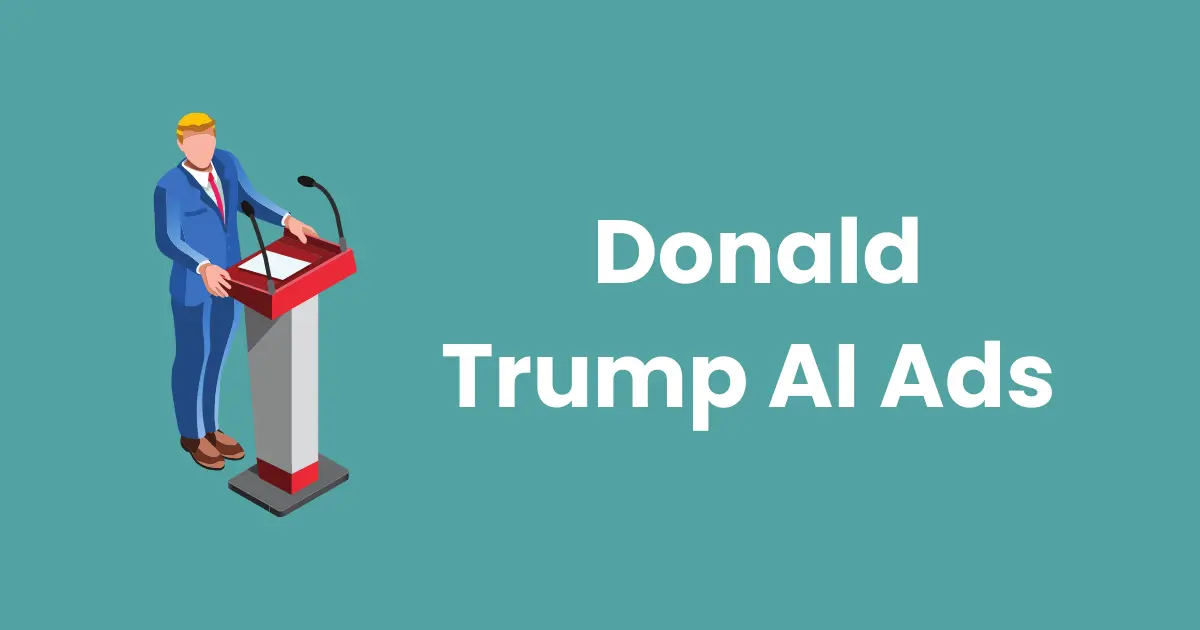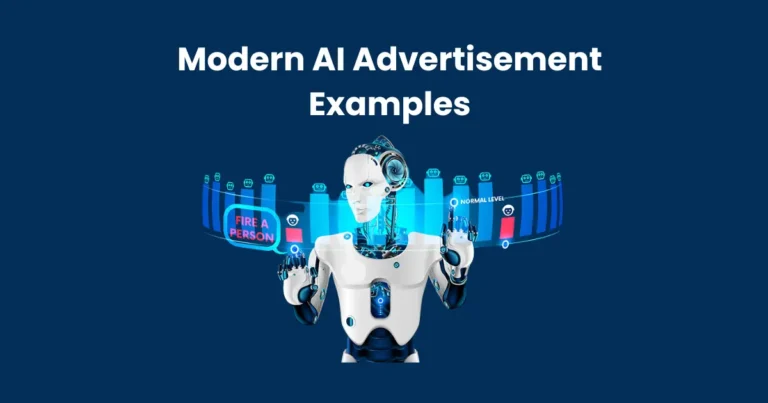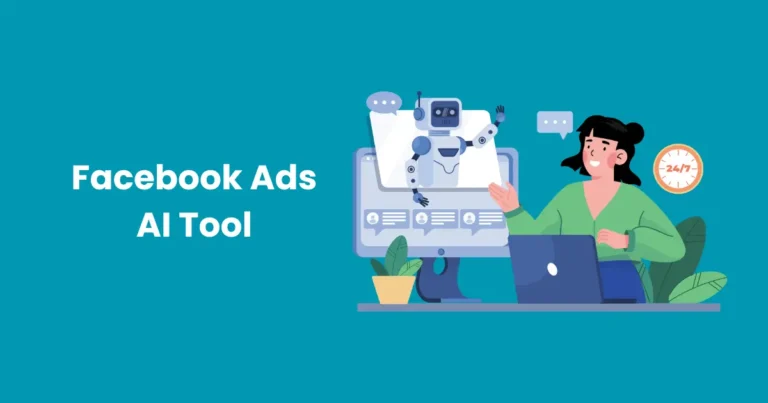Donald Trump AI Ads | The Rise of AI in Political Campaigns

Contents
The political landscape has witnessed a profound transformation with the emergence of artificial intelligence (AI). Among the most notable instances is the strategic use of Donald Trump AI ads during recent campaigns. Donald Trump’s team crafted personalized and engaging Donald Trump AI ads that resonated with specific voter demographics, ensuring his messages reached broader audiences. This article explores the rise of AI in political campaigns, focusing on how Donald Trump’s innovative approach has redefined advertising in the digital age. Through examining key examples, ethical challenges, and future implications, we uncover the impact of AI on modern politics.
The Rise of AI in Political Campaigns
Artificial intelligence (AI) has revolutionized numerous industries, and political campaigns are no exception. With its ability to analyze vast amounts of data and generate highly targeted content, AI has become a powerful tool for politicians seeking to connect with voters in more meaningful ways. The integration of AI in campaigns has allowed teams to identify voter preferences, predict behavior, and tailor messages that resonate with specific audiences.
One of the most significant advantages of AI is its capacity to create personalized advertisements. Using machine learning algorithms, campaigns can analyze voter data, such as social media activity, demographics, and previous voting patterns, to deliver messages that align with individual interests and concerns. This level of precision ensures that advertisements are not only relevant but also persuasive.

Moreover, AI-driven tools have streamlined traditional campaign activities. Tasks like organizing voter outreach, optimizing social media strategies, and automating email campaigns are now more efficient than ever. AI has also enabled real-time analysis of public sentiment, allowing political teams to adapt their strategies based on the mood and opinions of the electorate.
In addition to these practical applications, AI has introduced new creative opportunities in political advertising. Through generative AI, campaigns can produce videos, images, and written content at unprecedented speeds. This technology has paved the way for visually compelling advertisements that capture attention and influence voter perception.
As political campaigns continue to embrace digital transformation, AI has emerged as a cornerstone of modern strategy. Its ability to enhance engagement and drive results ensures that it will remain an integral part of political advertising, shaping the way leaders communicate with the public.
Ethical Implications of AI in Political Advertising
The integration of artificial intelligence (AI) into political advertising brings both opportunities and challenges. While it enhances campaign effectiveness, it also raises critical ethical concerns that must be addressed to maintain transparency, trust, and democratic integrity.

Misinformation and Deepfakes
One of the most significant ethical concerns in AI-driven political advertising is the potential for spreading misinformation. AI tools can generate highly convincing deepfake videos, altered images, and fabricated audio clips that misrepresent opponents or create false narratives. These deceptive tactics can manipulate public perception, leading to misinformed voting decisions. For instance, AI-generated content might depict fabricated endorsements or actions, blurring the line between reality and fiction.
Erosion of Public Trust
The misuse of AI in political campaigns can erode public trust. When voters are exposed to misleading content, they may become skeptical of all campaign materials, even those rooted in truth. This widespread distrust not only undermines individual campaigns but also damages the broader democratic process.
Lack of Transparency
AI algorithms often operate as “black boxes,” making it challenging to understand how decisions are made. In political advertising, this lack of transparency can result in voters being targeted based on opaque or discriminatory criteria. Without clear guidelines, there is a risk of AI being used to exploit sensitive voter data, further deepening concerns over privacy and accountability.
Unregulated Use of Data
AI-driven campaigns rely heavily on data, including personal information collected from social media and other sources. The ethical dilemma arises when this data is used without informed consent. Voters may feel their privacy has been invaded, especially when campaigns utilize micro-targeting techniques to deliver highly personalized ads that could feel intrusive.
Balancing Innovation and Regulation
While AI offers significant advantages in crafting impactful political ads, the lack of robust regulations to govern its use poses risks. Policymakers must balance fostering innovation with implementing safeguards to prevent abuse. This includes promoting transparency in AI-generated content, ensuring accurate disclosures, and holding campaigns accountable for unethical practices.
In conclusion, while AI in political advertising can revolutionize voter engagement, it also carries ethical implications that demand attention. Striking a balance between leveraging AI’s potential and addressing its risks is essential to preserve public trust and uphold democratic values.
The Future of AI in Political Campaigns after Donald Trump AI ads
The future of political campaigns will be undeniably shaped by the rapid advancements in artificial intelligence (AI). As technology continues to evolve, campaigns will increasingly rely on AI to optimize outreach, craft persuasive messages, and engage with voters in innovative ways. However, alongside these opportunities, there will also be significant challenges to address, particularly concerning ethics, transparency, and regulation.

Enhanced Personalization and Engagement
AI will continue to refine the ability to personalize campaign messages. Advanced machine learning algorithms will analyze even more complex datasets to predict voter preferences, behavior, and priorities. This will enable campaigns to create hyper-targeted ads, ensuring messages resonate deeply with individual voters. Such personalization could lead to higher voter turnout and more meaningful interactions between candidates and their audiences.
AI-Powered Real-Time Adaptation
Future campaigns will likely utilize AI for real-time sentiment analysis during debates, speeches, and major events. By analyzing public reactions on social media and other platforms, campaign teams can immediately adjust their strategies to align with voter sentiments. This agility will give candidates a competitive edge in responding to shifting political climates.
Integration of Immersive Technologies
The combination of AI with emerging technologies like virtual reality (VR) and augmented reality (AR) could revolutionize political advertising. Voters might experience immersive campaign events from the comfort of their homes, such as virtual town halls or interactive policy demonstrations. AI-driven content creation will play a key role in making these experiences seamless and engaging.
Addressing Ethical Concerns
While AI offers immense potential, it also poses risks that campaigns must navigate carefully. The future will likely see stricter regulations on the use of AI in political advertising to prevent misinformation, deepfakes, and unethical data usage. Transparency will become a cornerstone of AI integration, with campaigns required to disclose when AI-generated content is used in advertisements.
The Role of AI in Voter Accessibility
AI could also enhance accessibility in political campaigns. Tools powered by AI might simplify complex policy discussions, translate content into multiple languages, or create adaptive materials for individuals with disabilities. These innovations will ensure broader inclusivity in political discourse.
Balancing Innovation and Democracy
As AI becomes more integral to political campaigns, maintaining the balance between innovation and democratic values will be crucial. While technology can empower campaigns, its misuse could undermine trust in the political process. Governments, tech companies, and political organizations must collaborate to establish ethical standards that safeguard democratic integrity.
In summary, the future of AI in political campaigns is both promising and challenging. By embracing its potential responsibly, campaigns can create more engaging and inclusive experiences for voters, while also addressing the ethical and regulatory challenges that come with such transformative technology.
Conclusion
The emergence of Donald Trump AI ads highlights the transformative power of artificial intelligence in modern political campaigns. By leveraging AI to create personalized, engaging, and highly targeted content, campaigns like Trump’s have set a new precedent for reaching and influencing voters. This technological evolution has redefined how messages are crafted and disseminated, offering both efficiency and creativity. However, with these advancements come significant ethical and regulatory challenges, such as misinformation, privacy concerns, and the potential erosion of public trust. Addressing these issues will be critical to ensuring that AI serves as a tool for democratic enhancement rather than disruption.
As AI continues to shape the future of political advertising, the focus must shift toward striking a balance between innovation and integrity. Transparent practices, ethical guidelines, and robust regulations will be necessary to maintain public confidence in political processes. While the capabilities of AI offer exciting possibilities for campaigns, its responsible use is essential to preserve the values of democracy. By embracing AI with caution and foresight, political leaders and campaigns can harness its full potential to engage voters meaningfully and ethically in the years to come.






